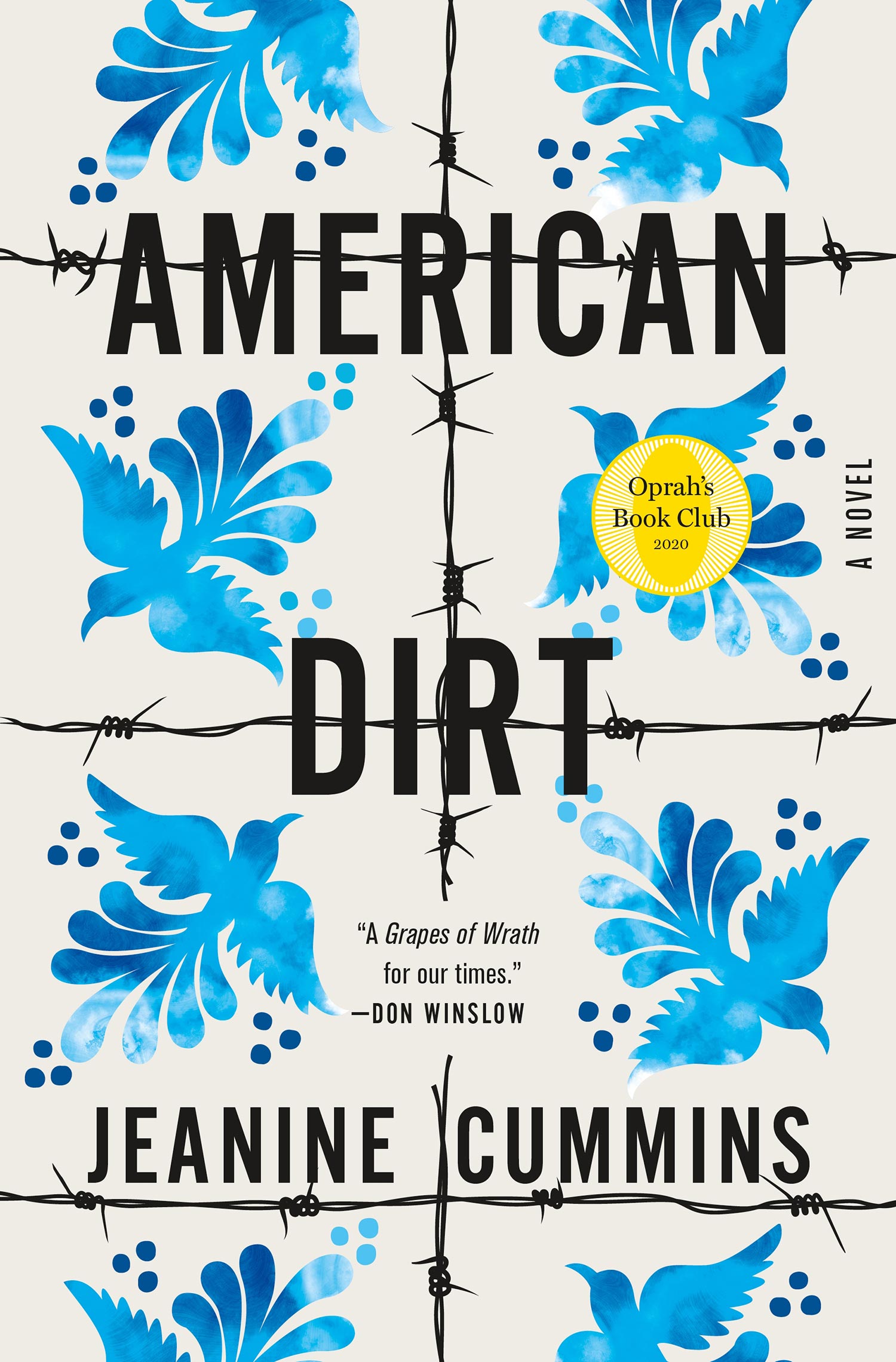The “American Dirt” Controversy: Lessons for Writers on Getting Cultures Right

Author Jeanine Cummins has been attacked on social media for sensationalizing the Mexican migration with lurid violence and stereotypical characters in her book. Photo courtesy of Flatiron Books
The American Dirt Controversy: Lessons for Writers on Getting Cultures Right
A conversation with Cuban-American author Dariel Suarez (GRS’12), education director at creative writing center GrubStreet
Not many people have a more informed perspective on the controversy swirling around American Dirt, the wildly hyped best-selling novel about a Mexican mother and her son escaping to the United States, than Latino writer Dariel Suarez.
American Dirt’s author, Jeanine Cummins, identifies herself as white and Latina. She received a seven-figure advance for her book, which has raised questions about how the publishing industry chooses which books, and writers, to aggressively promote, how authors approach writing about marginalized people from other cultures, and how the story of immigration, one of the most politically charged issues in the United States today, gets told.
As education director at GrubStreet, a nonprofit writing center in Boston, Suarez (GRS’12), who has an MFA in creative writing, spends a lot of time thinking about these kinds of questions.
Cummins has been attacked on social media for sensationalizing the Mexican migration with lurid violence and stereotypical characters. Her publisher, Flatiron, was criticized for promoting a soap opera-ish page turner as the immigration novel of our times—and throwing a book party with barbed-wire-festooned centerpieces—while overlooking talented Latinx authors who have written about the subject with greater nuance and complexity. Flatiron has since apologized for how it positioned and publicized the novel, and its parent company, Macmillan, has pledged to substantially increase its numbers of Latinx authors and staff.
Suarez was recently awarded first prize at the International Latino Book Awards for Best Collection of Short Stories in English for A Kind of Solitude (Willow Springs Press, 2019). His first novel, about a Cuban family navigating government censorship, social media, and migration, is due out next year from Red Hen Press.
BU Today sat down with Suarez to talk about American Dirt and what he tells students who want to write about people who are different from them.
Q&A
With Dariel Suarez
Bostonia: Some people say that this is about cultural appropriation, that a white American woman shouldn’t have written a novel about the Mexican migration. How do you feel about that?
Suarez: I have a fundamental problem with framing the conversation through the lens of how do people write in the call-out culture—are folks allowed to write about people who are different from them—because that’s just code for, “Can white people write about people who are not like them—who are not from the same race or culture—without getting criticism?”
To me, that’s centering the conversation on whiteness. It’s complicated. It’s not just POC [people of color] calling people out on Twitter, which is one part of it, but it’s also POC having more of a voice, which I think is a good thing… Now you have to consider a larger, more diverse audience if you want to be a good writer.
My perspective—and I think that of most critics and most readers—is that we aren’t saying you can’t write about a person who’s different from you, who’s from a different culture. That’s not what this is about.
Taking one for the team this week. Was curious about the season’s supposed big, breakout novel. If only books could be reviewed for their intention not execution.. https://t.co/0Ski959YHY
— Parul Sehgal (@parul_sehgal) January 17, 2020
Bostonia: Are you talking about fiction?
Suarez: Yes, but also any type of writing when it gets into culture and the way that an audience reads it. The point that’s being made is that if you are going to write outside of your own culture, or from a position of privilege, that you do so thoughtfully, that you engage with people in those communities—that you have them read your work and give you feedback.
And that you also interrogate—why should you be the one telling the story? How am I doing it? Who is reading it and giving me feedback? Where are my blind spots? Where am I not doing enough of the cultural work? Those, to me, are legitimate questions that should be part of the artistic process.
I’m Cuban, I was born in Cuba. I grew up in Cuba until I was a teenager, when I came to the United States. In fiction and in my nonfiction and in my poetry, I’ve written about Cuba and about people and places that have nothing to do with me. I’ve written outside of my race. I’m light-skinned and I’ve written about black characters. And I’ve written about women. I always have people read the work and critique it from a craft perspective, but also to highlight anything in the content that seems problematic or not nuanced enough or unclear.
I’ve been called out by my wife on things in my novel—this chapter, this scene, it just reads as a little bit sexist, did you intend for the characters to be that way? That’s valuable criticism.
Bostonia: Have you made changes in your writing based on that feedback?
Suarez: Yes. I want to make sure the cultural details in my stories about Cuba are as true to life as I can make them, based on the people who are reading these stories, who may have even more experience than I did because I left the country when I was young.
I give the benefit of the doubt to writers that they have good intentions. I think they have the right to be curious and to explore and to write about people who are different from them. And, in fact, they are doing it. They’re getting seven figures for it. It’s funny how people talk about censorship. I come from a country where censorship is the real thing, and it’s nothing like what these people claim here.
If you’re getting seven figures for a book, if Oprah is picking your book [American Dirt is Winfrey’s latest book club selection], if you’re getting a lot of attention, I don’t believe that’s censorship. Now, if you’re being criticized, that’s different. Some people can get personal, they can make threats—that’s crossing a line. There’s no place for that in any conversation.

Suarez: But the bigger point is—there is a community of people telling you there’s something wrong with this book. And you should listen and say, “Let me engage, let me see where I failed because obviously it’s not resonating with the community that I’m writing about.” But that’s often not their [the writers’] reaction and I think that’s where people get frustrated.
Bostonia: What do you tell your students about writing about the so-called other?
Suarez:
I tell my students you can write about anyone and any place you want. You should be ambitious in your work and write about what you don’t know as a way to learn, as a way to inhabit other people and to develop empathy. Then you should have people read the work and check you on your blind spots.
Your job is to make it nuanced, to not rely on stereotypes and not fall into the lazy pitfall of writing a character that you only define through two or three characteristics and put into a box, instead of saying, “I want to have a complex, interesting, layered human being who happens to be this way and these are the ways it manifests in the story.”
And also to not assume that folks identify themselves only through one lens. I think stereotypes happen when you write about a black character and everything in the story is defined through the lens of the fact that they’re black. That’s not how we think about ourselves. I don’t think of myself as Cuban, Latino, every second of the day. I’m human, I’m a metalhead. I like heavy metal music. That’s a part of my life that’s important to me. So if I were to write about myself, that would be something that I would want to explore, maybe even more so at times than the fact that I’m Latino or Latinx.
At GrubStreet we emphasize content, which encompasses context, alongside craft as part of the conversation. Any social, cultural, gender, racial stuff that might be part of the writing—we lean into that conversation. We believe inclusion and diversity are directly tied to artistic excellence—we don’t separate the two. The goal is the same: let’s be better writers—and better people.
You should write about what you don’t know as a way to learn, as a way to inhabit other people and to develop empathy.
Suarez: It’s all complicated and it’s never going to be perfect. I think our approach, which is starting to come more to the forefront, is, hopefully, creating generations of writers who will be more aware of the cultural importance of their work and their audience. I think what happens to a lot of these writers: they grow up in a bubble, they study and get feedback and praise in a bubble, and then reality hits when the book comes out and people say, “Hey, you forgot about us, you didn’t take into account how we would feel about your book.”
This is not about censorship. Any writer is susceptible to a Twitter storm. Unfortunately, that’s the reality that we live in. It’s how you respond and how you engage with it and how you grow from it and how you improve your work that I think matters. And I think that’s also often not central to the conversation.
Bostonia: Have you read American Dirt?
Suarez: I’ve read a few chapters, and I’ve read a few of the reviews that did a good job of delineating some of the issues. For anyone in that culture [Mexican], I can understand why it would feel problematic. Based on the chapters that I read, I felt like the use of Spanish was at times laughable. It felt badly done, artistically. And also some of the names and details felt like stereotypical telenovela, soap opera.
But the frustrating part to me is more than just the the artistic failure—it’s that in publishing they keep giving money and privilege to writers who are not within the culture. And then so many other writers who are writing about the same things in a more complex and nuanced way are not getting the money, the attention.
It’s very disheartening for writers to look at the way the publishing industry is run and then to see people get so up in arms when they get criticized. Work, art—it’s up for being socially and culturally criticized. That comes with the territory, especially with such a high-profile book.

Comments & Discussion
Boston University moderates comments to facilitate an informed, substantive, civil conversation. Abusive, profane, self-promotional, misleading, incoherent or off-topic comments will be rejected. Moderators are staffed during regular business hours (EST) and can only accept comments written in English. Statistics or facts must include a citation or a link to the citation.